Starting in Fall 2025, UAE kindergartens will require daily Arabic lessons, guided by a structured curriculum to boost language skills among all students. This effort marks a significant shift in early education, aiming to cement national identity and nurture thorough language abilities from the start.
Key Takeaways
- UAE’s education reform requires 240 minutes of weekly Arabic instruction, expanding to 300 minutes by the 2026–27 school year.
- This effort strengthens national identity and language skills for both native and non-native speakers.
- Lessons will use engaging, age-appropriate materials under the guidance of qualified teachers.
- The reform also mandates Islamic Studies and stresses integrating cultural and social values into the curriculum.
- Implementation will be reviewed through advisory visits and complete compliance inspections by the Ministry to ensure alignment with national education standards.
Revolutionizing Kindergarten Education: Mandatory Arabic Lessons in the UAE
Starting in Fall 2025, the UAE Ministry of Education will require private and charter kindergartens to implement daily Arabic language lessons. This policy mandates 240 minutes of instruction per week, increasing to 300 minutes by the 2026–27 academic year. The change marks a shift from optional exposure to a structured, inclusive curriculum.
Native and non-native speakers will both benefit from this initiative. It’s designed to strengthen national identity while ensuring broad language proficiency from an early age. The curriculum will use approved materials taught by qualified teachers, ensuring high-quality learning experiences.
Structured Curriculum and Qualified Teachers
The introduction of a formal Arabic curriculum represents a transformative step in early childhood education. Lessons will incorporate engaging, age-appropriate materials. Key aspects of the new policy include:
- The development of a consistent curriculum ensures equal access for all students.
- The use of high-quality learning materials approved by educational authorities is mandatory.
- Every child receives instruction from teachers with specific qualifications, fostering effective communication.
The Abu Dhabi Department of Education and Knowledge (ADEK) will oversee the successful implementation of this initiative, aiming for a seamless transition.
Impact on National Identity and Early Education
By embedding Arabic language instruction into the early educational framework, this policy supports cultural cohesion and linguistic proficiency, critical components of national identity. It also sets a foundation for academic success, as studies have shown early language learning can enhance overall cognitive development. If you’re interested in understanding more about language acquisition benefits, Stanford offers insightful resources on this topic.
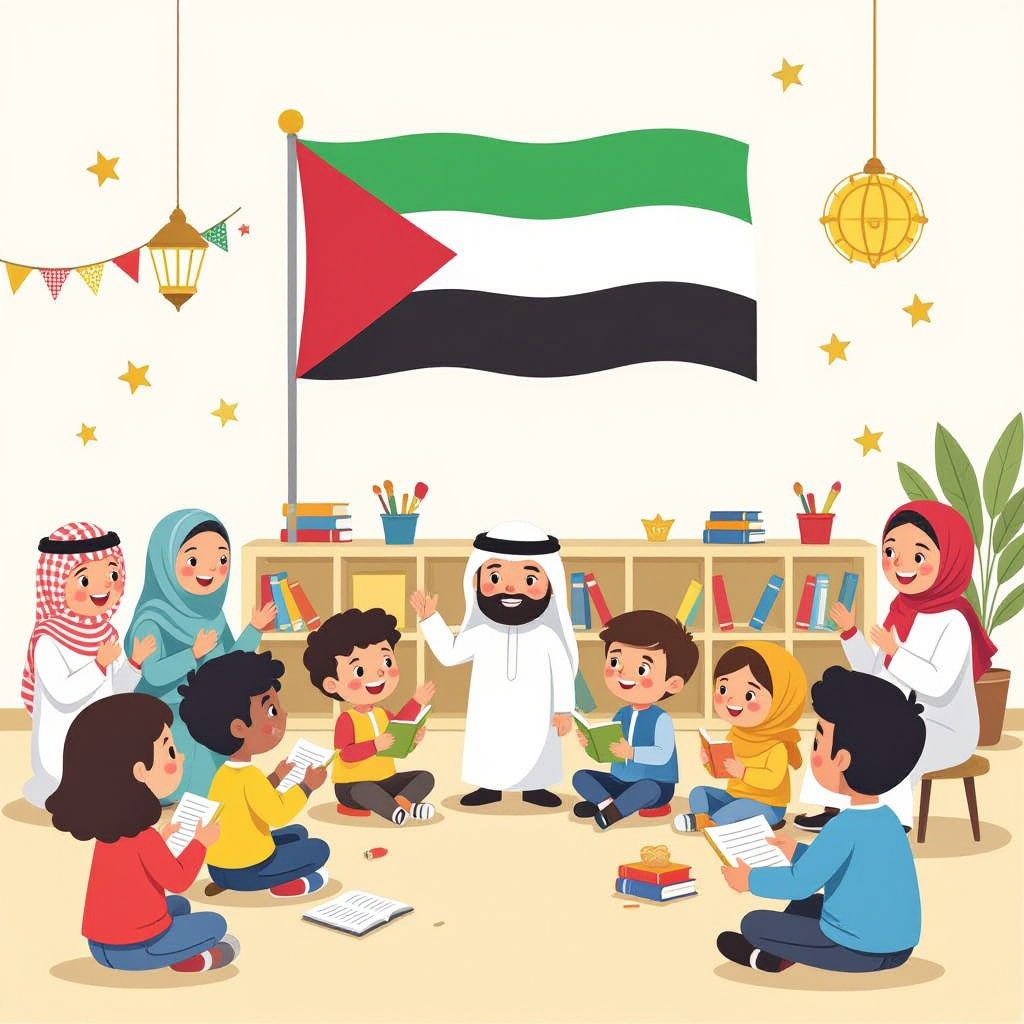
Expanding Curriculum Horizons: Arabic, Islamic, and Social Studies
The introduction of compulsory Islamic Studies, dedicating 90 minutes each week for Muslim students, represents a significant step in curriculum reform. This approach doesn’t just aim to teach religious tenets but also to deepen students’ understanding of their cultural roots and national identity. The reform is thoughtfully designed, offering flexibility so that schools can incorporate it into their existing frameworks.
Social Studies take on a new dimension with a focus on family life, geography, and social values. Emphasis on play-based, interactive activities makes learning engaging and relatable for young minds. This interactive method ensures children not only absorb factual knowledge but also develop a practical understanding of the content. This kind of dynamic learning aligns with fostering a strong sense of belonging and cultural values.
Integrating this new structure into the daily schedule can seem like a balancing act, but with its flexible nature, schools can creatively adapt it to fit their unique setups. Teachers and parents alike should notice a marked difference in students’ engagement and enthusiasm toward subjects that resonate more personally with their lifestyles and traditions. For those interested in the bridge between education and cultural enrichment, UNICEF offers valuable insights into play-based learning. As UAE kindergartens expand curricular horizons, these changes promise enriched educational experiences.
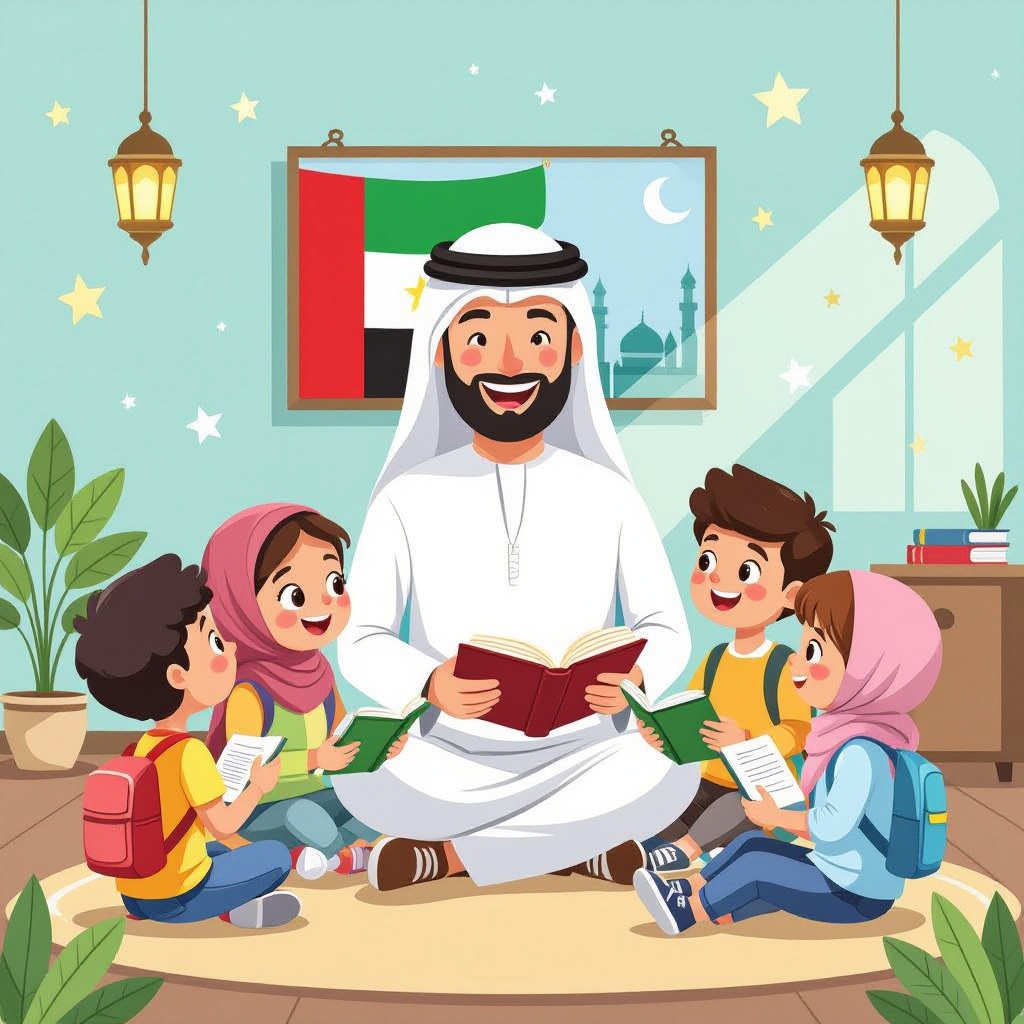
Ensuring Compliance: Monitoring and Implementation
The Ministry’s teaching frameworks for kindergartens will establish a consistent approach, setting expected learning outcomes that all institutions must follow. A key goal is to uphold educational standards across the UAE by ensuring kindergartens align with the newly enforced Arabic lessons mandate. The framework not only provides a structured curriculum but also establishes clear benchmarks for educators to achieve.
To monitor progress and adherence, the Ministry plans to conduct advisory visits. These visits will initially offer guidance and support to help kindergartens integrate the framework effectively. By the 2026/2027 academic year, full compliance inspections will be conducted to ensure all schools meet the established standards. These inspections will play a crucial role in maintaining high-quality education, ensuring that every kindergarten is consistent with national educational goals.
For kindergartens aiming for compliance, here are some points to consider:
- Regularly review and adapt teaching practices to meet the framework’s objectives.
- Engage with Ministry advisors during visits to gain insights and enhance educational delivery.
- Prepare documentation and evidence of adherence to the framework for future inspections.
This structured approach promises to uplift Arabic language skills from an early age, setting a strong foundation for future learning. For additional resources on educational compliance, the UAE Ministry of Education’s official website provides extensive guidance and updates.
In the UAE, where expats significantly outnumber Emiratis, creating a strong sense of cultural heritage and national identity from an early age is essential. This initiative emphasizes the mother tongue, Arabic, supporting cultural preservation while promoting emotional development. By fostering linguistic confidence, children are better prepared to embrace their identity.
Early childhood stands as a crucial window for language learning. The recent reforms aim to close the language gaps highlighted by ADEK surveys, ensuring every child gains a solid understanding of Arabic. This foundational step in early education not only aids linguistic fluency but also equips children with skills that extend beyond language, touching on personal and emotional growth. For more insights on the importance of early language acquisition, the National Institute of Child Health and Human Development offers valuable perspectives.
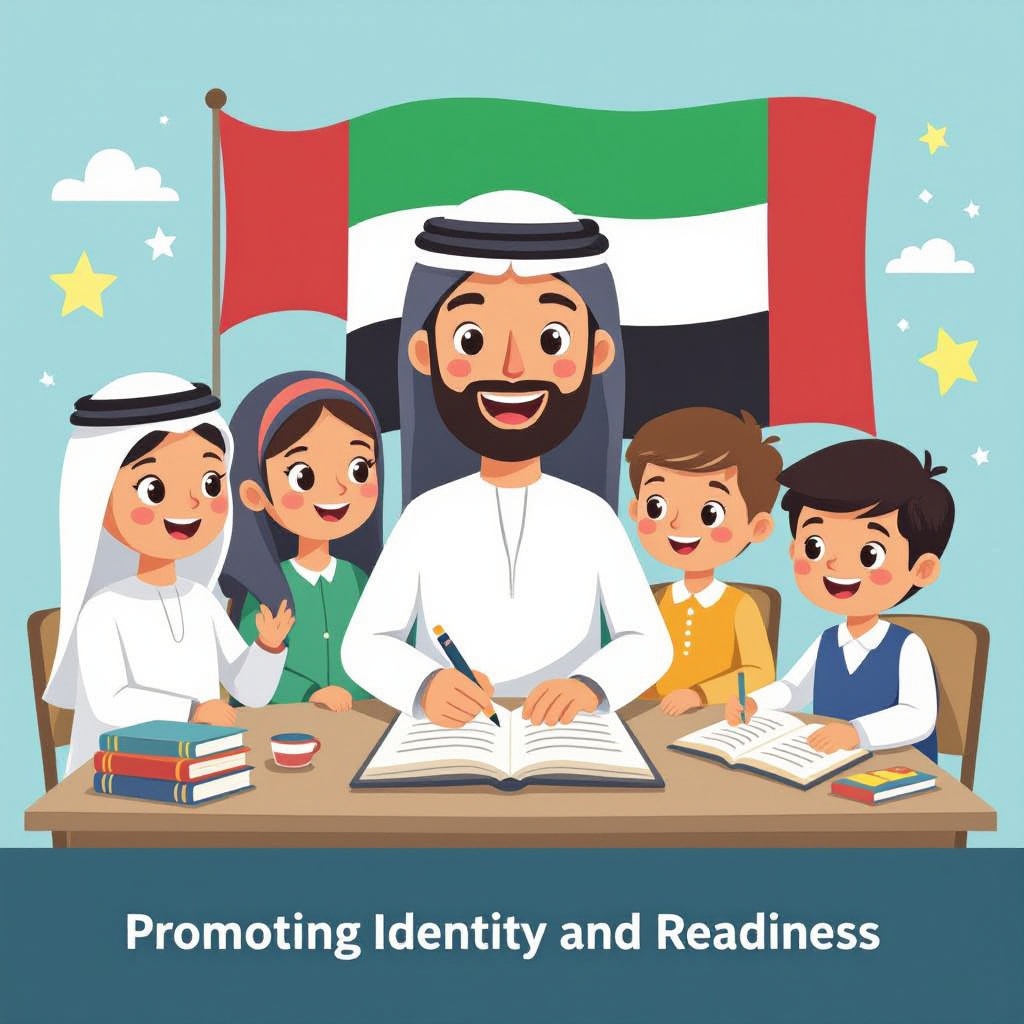
Integrating Innovation: Arabic Learning with AI and Digital Tools
The United Arab Emirates is leveraging artificial intelligence to revitalize Arabic education. By digitizing 20 million Arabic words, this endeavor not only preserves linguistic heritage but also places Arabic education at the forefront of digital competitiveness. The integration of AI-driven platforms transforms how young learners engage with the language.
One standout feature includes interactive learning tools that adjust to a child’s pace, ensuring a personalized experience. This fusion of cultural tradition and modern technology equips students with essential skills for today’s digital landscape. Platforms like Duolingo and Rosetta Stone showcase how effective digital resources can be in language acquisition, setting benchmarks for Arabic language learning. By embracing these innovative methods, the UAE sets a precedent for educational excellence. Implementing AI tools in education reshapes the classroom, making Arabic lessons more engaging and effective for the kindergartners of today and leaders of tomorrow.
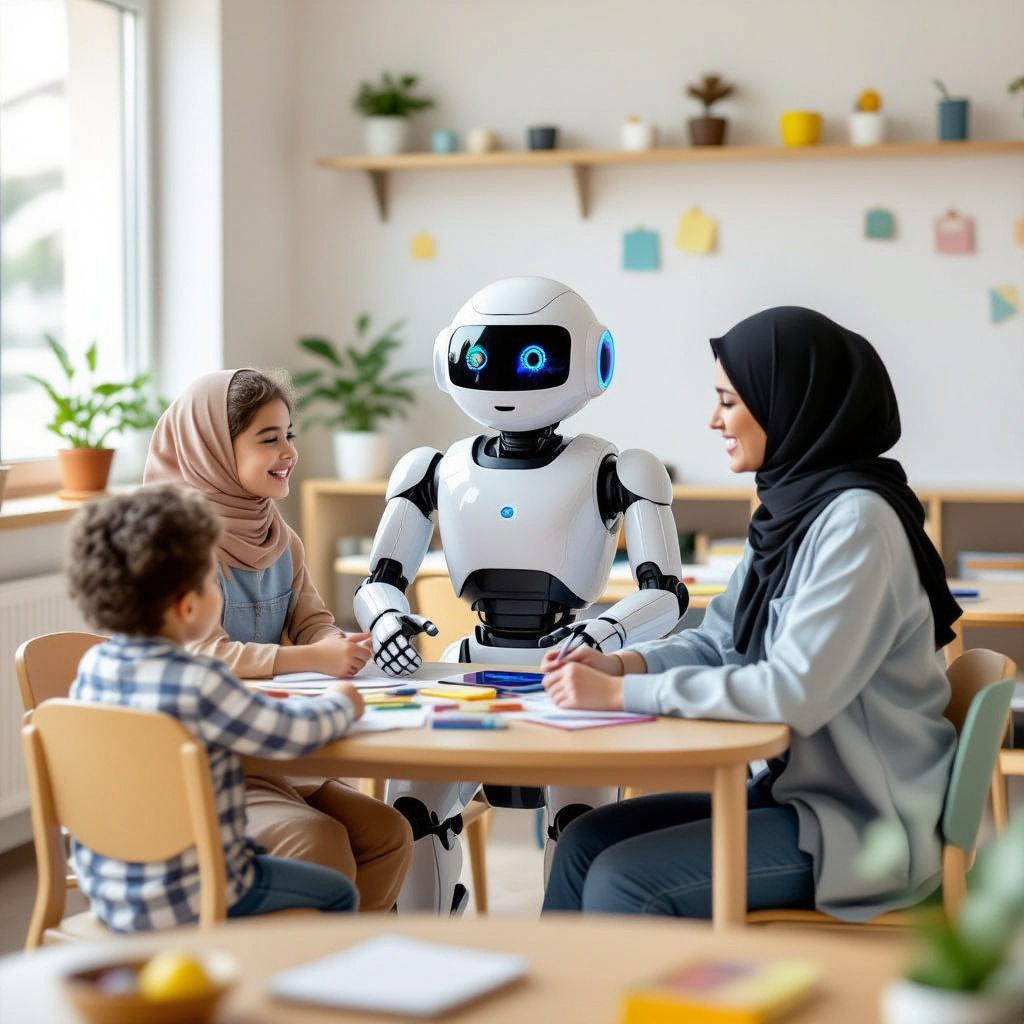
Advancing Teacher Training and Recruitment Standards
Schools are changing how they hire teachers, using psychometric assessments as a new tool in the process. This innovative approach ensures educators possess a thorough understanding of Emirati culture, aligning with the UAE’s educational aspirations. Implementing such assessments supports high recruitment standards, ensuring teachers can effectively engage with students and enrich their learning experiences.
To meet the demands of the new curriculum, ongoing professional development for teachers has become essential. Focused on language instruction and cultural insights, this continued training helps educators remain effective and versatile. Here’s a quick look at what’s emphasized:
- Comprehensive understanding of Emirati culture
- Adherence to updated recruitment standards
- Continuous development through professional training
By prioritizing these areas, the UAE aims to create an educational environment that nurtures a deeper connection between students and their cultural heritage. Learn more about the importance of cultural education from institutions like UNESCO.
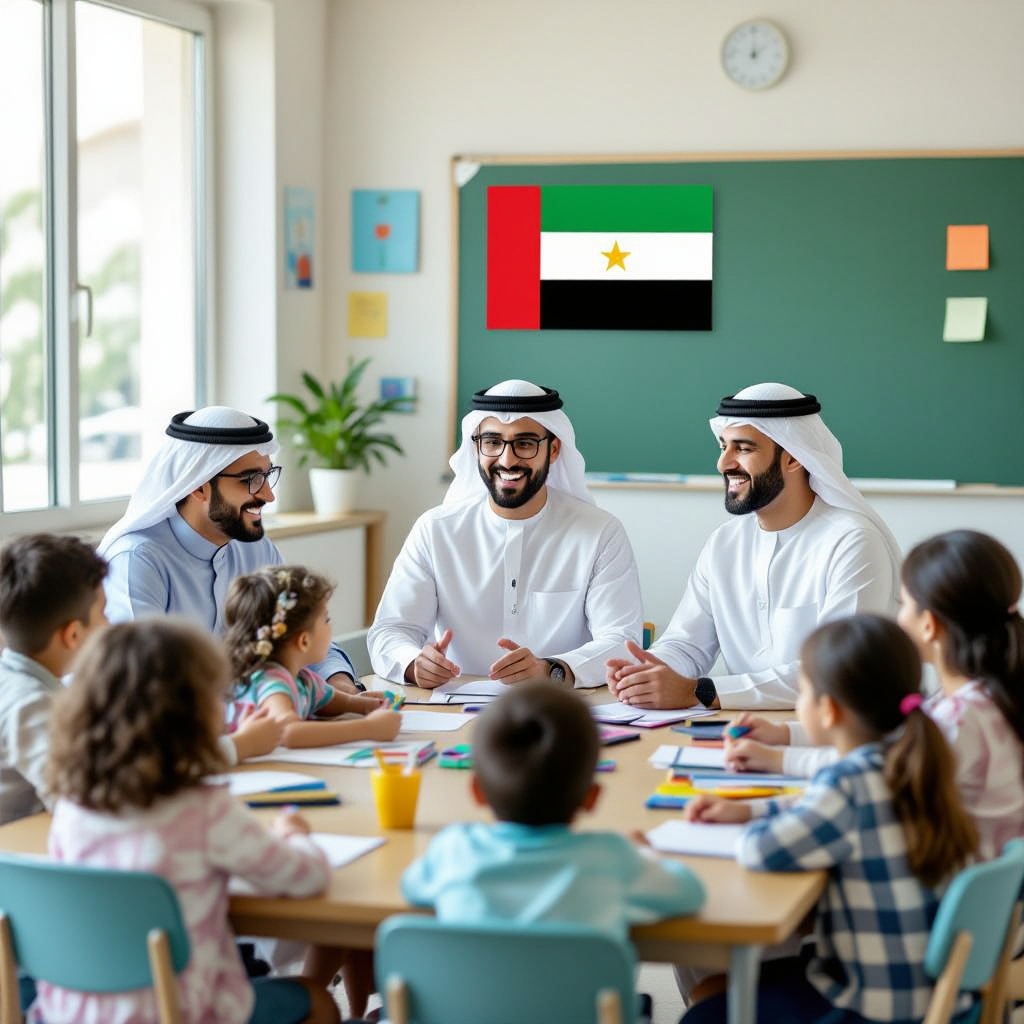
Sources:
Education UAE – ADEK to Implement New Arabic Language Curriculum in Kindergartens
Times of India – How the UAE is Using Artificial Intelligence to Build the World’s Largest Arabic Language Resources
The Filipino Times – UAE Mandates Arabic, Islamic, and Social Studies in Private Kindergartens
Embassy of the United Arab Emirates – Education in the UAE
Semafor – UAE Makes Arabic Mandatory for Kindergarteners
UNESCO Data for United Arab Emirates
The National News – Arabic Speaking Placed Front and Centre in UAE’s Government Schools
SAGE Journals – Ensuring Quality Education in UAE
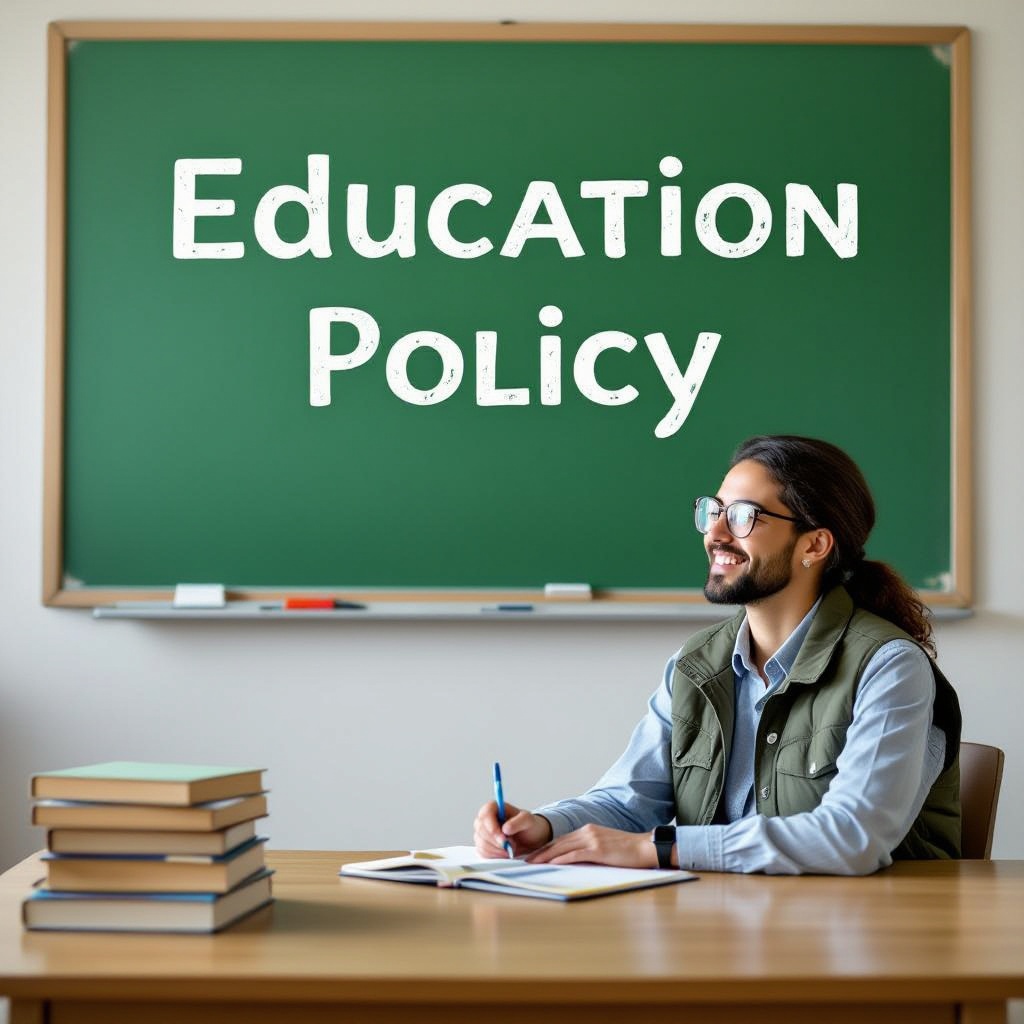
One Comment
[…] schools from the 2025–2026 academic year. This change will affect over a million students from Kindergarten through Grade 12. It’s a strategic plan to prepare young minds with the vital skills needed to excel in an […]